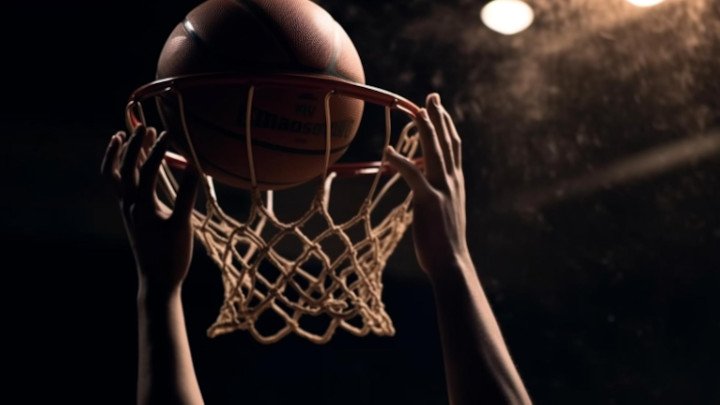Basketball in Turkey: Euroleague Predictions and the Success of the National Team
Turkish basketball has become so well-developed that club and national team performances are visible all over the world. Fans are no longer content to follow their domestic league but demand long Euroleague performances and worldwide competitiveness. The presence of ardent supporters, top-quality coaches, and a continuously expanding talent pool contributes to the development of basketball culture in the country. In the future, the most crucial question will be whether Turkish clubs can continue their Euroleague domination when the national team advances one more step on the international level.
Euroleague Outlook for Turkish Clubs
Anadolu Efes continues to be the pride of Turkish basketball in Europe, still bearing the scent of two consecutive Euroleague victories. The team still mixes experienced players with flexible youngsters, bringing equilibrium to the critical positions. For many fans following Euroleague predictions or checking betting sites (Turkish: bet bahis siteleri), Efes is almost always seen as a safe contender. The team has experienced a few lapses following its golden era, but Efes has still had enough star power to stay in the playoffs. Their ball handling and excessive use of creating perimeters make them dangerous to any opponent.
Fenerbahce also has a reputation to protect, as it has become a legitimate Final Four threat once again. The club invested in older international players and better roster depth, an element that usually determines who survives in the Euroleague in the spring. Physical teams are also able to adapt to them because they combine disciplined defense and fast offensive transitions. With a good leadership and a steady coaching vision Fenerbahce is once again a title contender.

Key Factors Shaping Euroleague Success
Several critical elements will determine the future of Turkish teams in the Euroleague. The domestic development of talents is eventually bearing fruit, and young Turkish players are getting more playing time during high-pressure matches. That provides both Efes and Fenerbahce with a brand that is both local and a foreign star. Another question is financial sustainability, as long-term investment is necessary to maintain competitiveness in the Euroleague.
Three factors can be singled out as determining the outcome in the season:
- Roster building and injury management stability.
- Experienced coach and floor general leadership.
- Defensive punishment of the best scoring teams.
All these factors have a direct impact on the ability of Turkish clubs to maintain momentum amid a grueling Euroleague schedule. It depends on the capacity to integrate such strengths to see whether another title takes another flight back to Istanbul.
The Rise of the Turkish National Team
The national team has not only remained a symbol, but it has also continued to be a regular participant in major tournaments. With a thrilling blend of European-based stars and NBA experience, Turkey brings the pace, intensity, and offensive creativity to the opponent. Many fans follow updates and discussions on platforms like MelBet Facebook Türkiye, where the excitement around the team’s style is always high. They play a quick ball game and play to the shot, which is the trend of present-day international basketball. The identity has enabled them to challenge conventional giants in the FIBA competitions.
Young Talent Reshaping the National Identity
The younger generation in Turkey has influenced the team's development more rapidly, and their influence cannot be overlooked. The domestic league entrants have demonstrated no fear of tackling more challenging questions, and this has made the game more competitive. The coaching team has been utilizing them to enhance defensive strength and stamina, particularly during the qualification stages. This infusion of young energy has made Turkey much more unpredictable as far as tournament play is concerned.
Guard rotations have been particularly distinct, providing fast scoring spurts and excellent defensive perimeter skills. The balance of old and young talent has resulted in an active balance. That mix has enabled Turkey to compete with the best, even as experience in tournaments is still being acquired.
The Most Important Players Right Now
Several outstanding players cannot be discussed outside the context of the team's development, which has defined its current image. Their functions are not merely statistical but also emotional in that they offer leadership in the times that matter. The essence of versatility and composure is the core group that is giving Turkey its strength now.
Key contributors include:
- Alperen Şengun: overwhelming interiority, passing vision.
- Cedi Osman: steady outside shooter and defender.
- Shane Larkin: a naturalized guard who offers creativity and shot-making.
Collectively, they form a backbone that can carry Turkey into the later phases of international tournaments. All these combined effects raise the ceiling of the national team.

Turkish Basketball Landscape Overview
The table below shows the alignment of club and national performance in basketball to continue the good standing of Turkey:
| Category | Status in Turkey | Impact on Competitiveness |
|---|---|---|
| Euroleague Clubs | Anadolu Efes, Fenerbahçe among contenders | Consistent Final Four presence |
| National Team Stars | Şengün, Osman, Larkin as core | Capable of challenging traditional powers |
| Youth Development | Growing domestic league pipeline | More depth and long-term sustainability |